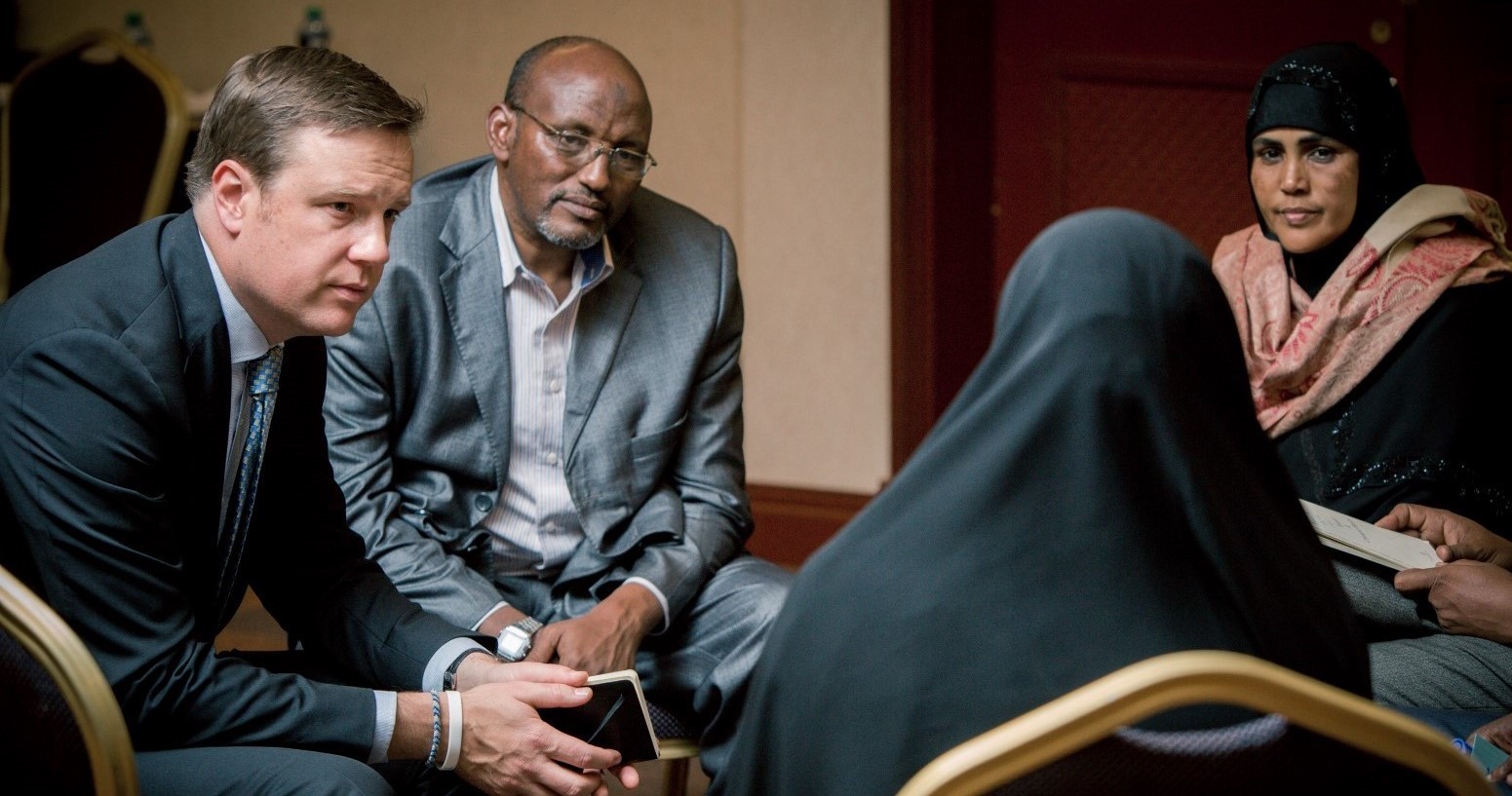International Women's Day 2017 - Message from Scott M. Weber, Director-General of Interpeace

On International Women’s Day, we join with others in the international community to honour the milestones and progress made on the long road to gender equality.
International Women's Day celebrates the social, economic, cultural and political achievements of women around the world. It also reminds us of the courage, conviction, determination, talent and skill required to overcome the unique barriers that women face every day, all around the world.
In 2015, world leaders adopted the Sustainable Development Goals, placing gender equality and empowerment of women and girls at the heart of the 2030 Agenda for Sustainable Development. Upon taking office in December last year, António Guterres, UN Secretary-General, announced that “gender parity [would] become a clear priority from top to bottom in the UN”.[1] His commitment has given new energy to this issue and stimulated debate at the international level. Leadership movements, such as the International Gender Champions initiative, are also gathering momentum and pushing for action and accountability.
While these developments inspire hope, there is still a long way to go. Sadly, in these uncertain times, we find ourselves having to defend and protect the achievements of previous generations, rather than build upon them to get us all past the finish line of gender equality.
Women only hold 22% of legislative seats,[2] 17% of ministerial positions[3] and have made up only 4% of signatories to peace treaties in the last 20 years - all the while making up 50% of the global population.4 Women still earn 60-75% of men’s wages[4] for equal responsibilities.
Of course, the scope of gender issues encompasses much more than pay, leadership and political representation. Violence against women and girls, economic dis-empowerment, barriers to reproductive rights and disadvantageous legal standards that differentiate based on gender, all deserve urgent and serious attention. These are products of a complex system of power structures that can both liberate and oppress.
We must then ask ourselves, why, despite the numerous high-level pledges and gender initiatives, is progress so slow? Transforming commitments to gender equality from rhetoric into results remains a daunting challenge.
I strongly support the UN’s focus for this year’s International Women’s Day, “Women in the Changing World of Work: Planet 50-50 by 2030”.
As Interpeace continues to reflect on how we can do more for gender equality institutionally and in our peacebuilding work, I would like to share six areas that have proven effective in advancing gender parity in the workplace. These are key take-aways from the recent summit in Geneva entitled: ‘Breakthrough Barriers: Women in the Public Sphere’:
- Retention and performance – push for structured decision-making with clear and consistent criteria (men are often evaluated on the basis of ‘potential’ whereas women are evaluated based on past performance).
- Gender champions shape new gender champions – model gender-sensitive behaviour and mentor others to become informed and active in the gender parity movement; invest in mentoring gender-sensitive emerging leaders: the more female leaders mentoring men and the more male leaders mentoring women, the more inclusive the workplace becomes.
- Inspire and motivate women – involve and encourage women to take on challenging work that pushes them beyond their comfort zone.
- Set smart quotas in the workplace – quotas are key to helping achieve gender parity. The Summit concluded that quotas are more helpful than they are harmful.
- Measure and create accountability – establishing gender metrics and creating accountability frameworks around gender to accelerate the progress toward gender equity.
- Role models are important – recognize and praise behaviour that support gender equality at work; give visibility – internally and externally – to male and female leaders that model inclusive behaviour in the workplace.
We are often advised that the more strategic and effective approach to galvanize support for gender equality is to shift the conversation from “gender parity is the right thing to do”, to “gender parity is the smart thing to do”. The research and data are indeed compelling: diverse and inclusive teams deliver better results. That much we know. Gender equality is fundamental to achieving peace and progress. That much our peacebuilding work confirms.
At a more fundamental level however, I would assert that anything less than full equality for women is not progress. It is a refusal to acknowledge and honour women’s humanity and that women’s rights are human rights.
Scott M. Weber
Director-General, Interpeace
and International Gender Champion
[1] IPS News Agency, 13 December, 2016
[2] Inter-Parliamentary Union Women in Parliaments
[3] World Bank Gender Statistics
[4] UN Women
